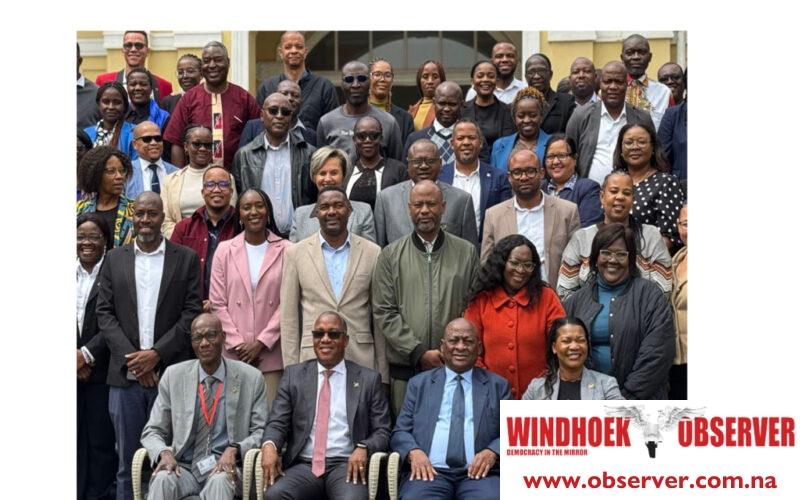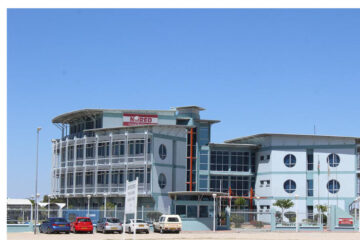Niël Terblanché
The minister of health Kalumbi Shangula has reiterated that every cent allocated to the Ministry of Health and Social Services (MoHSS) must be accounted for.
He made the call during the annual ministerial planning and financial management meeting held in Swakopmund on Tuesday.
“Not spending the available funds, denies service to the intended beneficiaries and is a form of financial mismanagement that must be avoided,” he said.
Shangula stressed the importance of financial sustainability and sound management as cornerstones for advancing Namibia’s health system.
He also stressed the need to address the social determinants of health, such as access to sanitation, education, and food security, through the “whole of government, whole of society” approach.
Shangula said that he is concerned about the shortage of health workers in Namibia.
“With a current ratio of 1.55 health workers per 1 000 population, far below the World Health Organization’s recommended threshold of 4.45, the ministry is actively working to address this challenge,” he said.
He added that in this regard, applications have been called for in critical areas such as audiology, dental technology, nuclear medicine, and radiation therapy.
“In addition, the ministry is placing greater emphasis on fields like public health and epidemiology to build capacity for preventive care,” he said.
Shangula called for active participation in the meeting’s discussions, urging participants to share innovative solutions that could improve service delivery across regions and health facilities.
“The solutions we proffer here must be realistic and achievable,” he said while expressing confidence that actionable interventions for a healthier Namibia will be found.
Shangula outlined the ministry’s vision to strengthen health services.
“Our objective for this meeting is to chart a course that will allow us to improve services and efficiently manage resources to fulfil our core mission – providing affordable, accessible, quality healthcare and social services that respond to the needs of the population,” he said.
He also pointed out the vital role of accountability, innovation, and transparent governance in ensuring the ministry’s success.
According to Shangula, the COVID-19 pandemic, while posing unprecedented challenges, also presented unique opportunities to modernise the country’s healthcare system.
He added that strategic financial management during the pandemic allowed for the reallocation of funds to high-priority areas, such as critical care infrastructure and the procurement of essential medicines.
“These initiatives strengthened Namibia’s healthcare delivery, leaving the system more robust and agile in responding to future health crises, he said.
Shangula pointed out several achievements made during the current financial year, including the upgrading of intensive care units (ICUs), dialysis units, and the medical oxygen network infrastructure at various public hospitals across the country.
“The ministry also made strides in improving its workforce management through the roll-out of the Integrated Human Resources Information System (iHRiS), a key tool for managing healthcare workers more efficiently,” he said.
Shangula also outlined the ministry’s strategic priorities for the 2025/2026 financial year.
“Among these is the continued strengthening of the public healthcare infrastructure, making it more adaptable and resilient,” he said.
Shangula added that the focus will also be on improving financial sustainability by optimising budgets and cutting waste.
According to Shangula, evidence-based decision-making will play a central role in future planning, with the ministry investing in data collection and analysis to inform its strategies.




